Talking to your elderly parents about living aids can feel like a delicate topic. As children, we want to honour their independence while ensuring they’re safe and comfortable. In Ireland, where family bonds run deep, starting a conversation like this may feel especially sensitive. But with the right approach, you can show your parents that living aids are tools to enhance their independence, not take it away.
Here’s a caring and thoughtful guide to help you navigate this important discussion.
Understand Their Perspective
It’s important to step into your parents’ shoes before starting the conversation. Many older adults associate mobility and/or daily living aids with a loss of independence or aging, which can make the topic a bit emotional. Others might worry about how using a cane or walker might change how others perceive them.
Take some time to reflect on their feelings and concerns. This will help you approach the topic with compassion and understanding, ensuring the conversation feels supportive rather than critical.
Choose the Right Time & Place
Timing matters. Pick a moment when you and your parents are relaxed and have time to talk without interruptions. Avoid bringing it up during stressful situations, like after a fall or when emotions are running high.
A good time might be during a quiet family gathering over a cup of tea at home. Creating a calm and familiar environment will make your parents feel at ease.
Highlight Their Independence
The key is to frame daily living aids or mobility aids as tools that enhance independence rather than limit it. For instance, you could say:
- ‘‘I’ve noticed how active you’ve been lately – it’s amazing! I’ve hear you mention that your back is a little sore after a walk. Would a cane or a walker help? It could make life a bit easier to get around and you can keep doing the things you love?”
- ”You love your tea, how many is that today already? I could see you where in a bit of pain lifting it and pouring mine. I saw this new kettle where you don’t have to lift it so it wouldn’t cause any pain. You should see it, they have cool colours and you can keep up your daily total of 100”
This approach focuses on how a mobility or daily living aid can help them maintain their freedom, rather than suggesting they need ‘help’.
Share Stories of Others
If you know someone in the family or community who uses a mobility or daily living aid, share their positive experiences. Hearing about someone they respect or relate to can help normalise the idea.
For example:
- ”I was chatting to Mary down the road, she was saying her new kettle has made such a difference. She loves being able to show it off to the grand kids and it doesn’t flair up her arthritis like the old one did.’‘
Hearing relatable stories can help your parents see mobility and daily living aids as practical and empowering.
Offer to Explore Options Together
Your parents might feel overwhelmed by the thought of choosing the ”right” aid. Offering to help can make the process less daunting. You can say something like:
- ”There are so many great options out there now – some are really modern and discreet. How about we pop into the local store and take a look together?”
Visit local mobility stores in Ireland or browse online retailers to explore options that suit their needs. Many stores such as Homecare Medical and Beechfield Healthcare, offer friendly advice and a variety of solutions.
Reassure Them About Their Safety
For parents who’ve experiences a fall or worry about their balance, safety is a big concern. Reassure them that aids are designed to prevent accidents and give them more confidence.
You could say:
- ” I know you’re careful, but I’d feel so much better knowing you have something to keep you steady. It’s just a little extra support so you don’t have to worry.”
Respect Their Decision
It’s important to give your parents time to process the idea and make their own decision. Even if they’re resistant at first, planting the seed can open the door for future conversations.
Keep the conversation open and supportive. Let them know you’re always there to help if they change their mind.
Emphasize the Benefits for Everyday Life
Help your parents see how a mobility or daily living aid can make their daily routines easier and more enjoyable. For example:
- ”Think about how much easier it would be to make the next round of tea when the gang is over with that Uccello Kettle I found. 6 cups in one and you don’t have to lift anything but your cuppa.’‘
- ”I read that using a mobility aid can reduce fatigue and make walks more comfortable. It might even help with your back.”
Focus on the positive changes they’ll experience rather than the challenges.
Starting the conversation about mobility and daily living aids with your elderly parents is about showing love, care, and respect. By approaching the topic with sensitivity and focusing on the benefits, you can help them see aids as tolls for maintaining their independence and enjoying life to the fullest.
If you’d like to explore options for mobility and daily living aids in Ireland, there are many great resources and stores ready to help. From lightweight rollators to stylish kitchen appliances, there’s something to suit every lifestyle.
Remember: this is a journey you can take together, one step at a time.







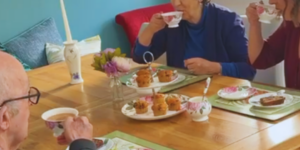
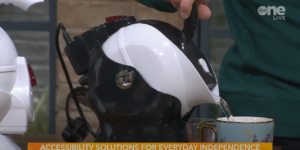

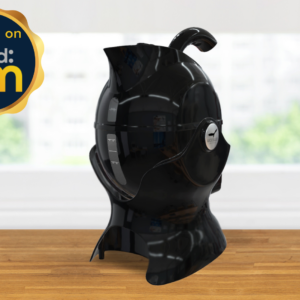
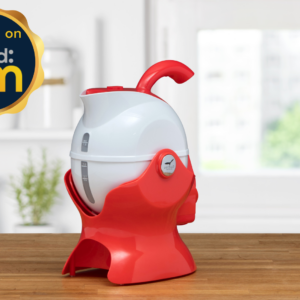
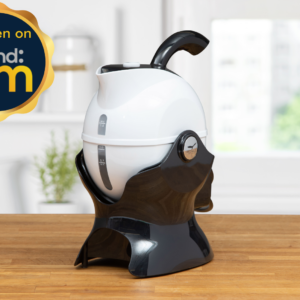

Leave a Comment